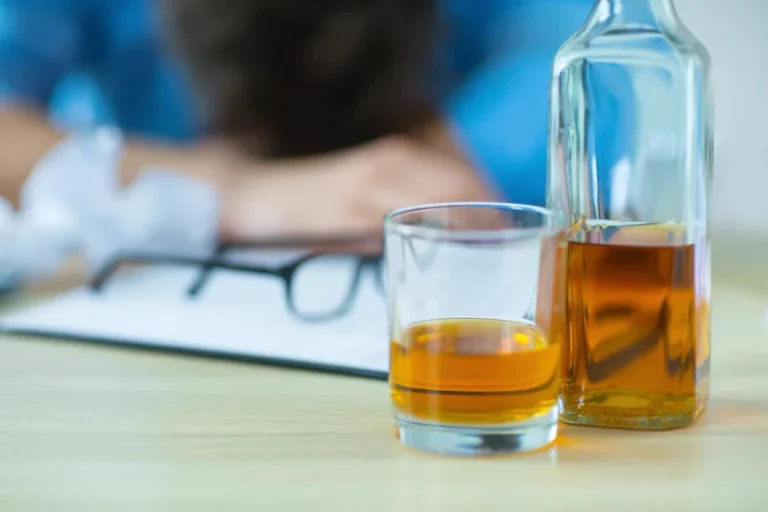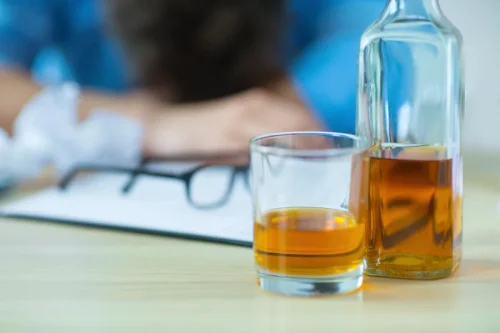
Alcohol can produce feelings of euphoria and excitement, making you feel instantly happier and more confident, but those feelings are fleeting. Much like barbiturates (sedatives), alcohol is a drug that affects the central nervous system (CNS) and the brain’s functionality. The good news is that treating both alcohol misuse and depression can make both conditions better. Depression may even cause people to begin consuming large amounts of alcohol. Researchers found those who use alcohol to cope with anxiety have greater chances of becoming dependent, misusing alcohol, or developing alcohol use disorder.

How can Depression and Alcohol Use Be Related?
In addition, your doctor may prescribe medicines that are meant to lower alcohol cravings, which can reduce your desire to drink. People with depression frequently lose interest in activities that once brought them joy like hobbies and social events.

Considering Your Social Scenarios
This can be done by demonstrating that compromised performance on a test assessing the function (e.g., on the matrix reasoning test, which assesses nonverbal intelligence) occurs with a brain lesion in the hypothesized neural source (e.g., the parietal cortex). However, uncomplicated alcoholics normally do not endure discrete and complete structural brain lesions, per se. It may be of little surprise that alcoholics are particularly challenged in reordering their everyday living and work activities considering these deficits in working memory, maintenance of mental set, distractibility, and sequencing. Together, these difficulties could result in “learned helplessness” and dampened motivation to face the challenge of change.
- Enzymes, mainly in the liver, metabolize (break down) alcohol, releasing a poisonous byproduct called acetaldehyde.
- “While alcohol can make you drowsy, it fragments sleep cycles and suppresses REM sleep, the deep stage crucial for memory, learning and cognitive function,” says Andrews.
- Seeking professional help from mental health professionals or addiction specialists is crucial for managing the interconnected challenges of depression and alcohol use disorders and promoting long-term recovery and well-being.
- Shrinkage of the mammillary bodies is observed only after chronic alcohol consumption, whereas swelling can be observed with acute consumption (Sheedy et al. 1999).
- If you think you or someone you know has alcohol poisoning, call 999 immediately.
Why Complex Carbs Matter
As a group, alcoholics share this constellation of behaviors characteristic of frontal lobe dysfunction, which also can include impaired judgment, blunted affect, poor insight, distractibility, cognitive rigidity, and reduced motivation. Conversely, the three types of studies highlighted in this section indicate that if an association between alcoholism and anxiety/depressive disorders does exist, it is likely to operate in a alcohol rehab relatively small subgroup of alcoholics. Similarly, the majority of alcoholics admit to experiencing periods of nervousness, including at least 40 percent who have had one or more intense panic attacks characterized by a brief episode of palpitations and shortness of breath (Kushner et al. 1990). Psychiatrists and other healthcare professionals may utilize a variety of screening tools coupled with patient examinations and even lab tests to assess for mental health conditions such as depression and their potential contributing factors. If you believe you’re susceptible of experiencing alcohol addiction or depression, you may want to speak with a mental health professional, such as a social worker, counselor, or therapist, about these concerns and how best to prevent or cope with these disorders.

Study at Cambridge

If you have more serious alcohol dependence, you might need help to stop drinking safely. Alcohol support services should assess you to work out whether you can stop drinking at home, or whether you should come into a specialist alcohol treatment centre. This resource looks at alcohol and how it can affect your brain and mental health. It is aimed at adults who want to learn more about alcohol, who are dependent on alcohol or who know someone who is. With the advent of computed tomography (CT), significant progress was made in indexing the severity of brain shrinkage in terms of enlargement of the ventricles and regional cortical sulci (see figure 2B and C).
Studies suggest that as many as 3 in 10 people who are dependent on alcohol could have ARBD. People who have delirium tremens should be admitted to hospital for immediate medical support. As we get older, our bodies change and break down alcohol more slowly. When setting goals for controlling your drinking, try to make them specific, easy to measure, achievable, realistic, and give yourself a timeframe within which to do them. There is no ‘safe’ level of alcohol consumption, as everyone’s bodies work differently.

Cardiovascular Health
- This creates a state of temporary confusion and leads to dangerous changes in the way your brain regulates your circulation and breathing.
- Studies of twins have shown that the same things that lead to heavy drinking in families also make depression more likely.
- In the long term, alcohol can be a trigger for the development of mental disorders.
- Individuals with mental health conditions may be more likely to use alcohol as a treatment.
- Once a person becomes deeply depressed, regardless of the cause, he or she may need to be hospitalized and provided with the appropriate precautions against suicide.
Major depression and alcohol use disorder are also co-dependent in women, research suggests. Women with depression are also more likely to engage in binge drinking. Hangover anxiety can also arise as the brain adjusts to the mental effects of alcohol. Drinking floods the brain with the neurotransmitter (brain chemical) gamma-aminobutyric acid (GABA), which contributes to feelings of short-term does alcohol make depression worse relaxation. It also inhibits another neurotransmitter, glutamate, which regulates mood. It’s common for people who drink alcohol to wake up the next day with a distinct sense of worry, panic, unease, or fear.
Battling Addiction: Alcohol Rehab That Can Help You
According to Kennedy, for those taking antidepressants, combining them with alcohol can reduce their efficacy. Get in contact with us by filling in our online insurance verification form below. Let us remove the confusion and difficulty of verifying your insurance coverage for treatment. We have years of experience in the addiction space and contracts with many of the big name insurance providers. By providing your name, contact information, and insurance provider, we can communicate directly with your insurance provider to find out if you are in-network with our facilities, the length of stay covered, and more without the hassle of having you contact the company directly. All information is confidential, and there is no obligation to enter treatment.


评论